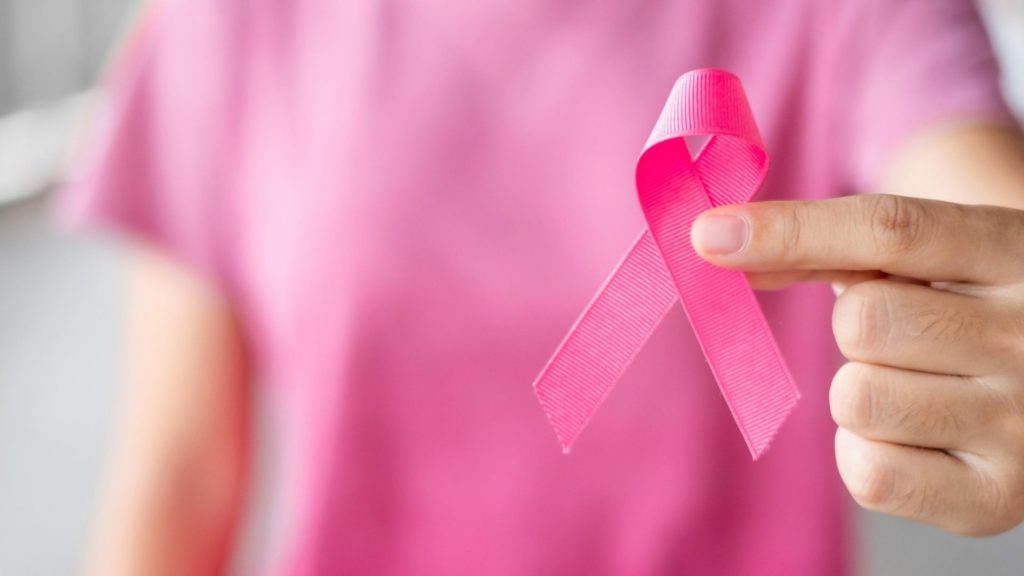Women all over the world live fearing breast cancer, an insidious disease that occurs with no known risk factors. With a mere five to 10 percent of cases linked to heredity, being a female over 40 years old is the only risk factor.
Nearly 2.3 million women around the world were diagnosed with breast cancer in 2022, leading to 670,000 deaths. It is the most prevalent cancer among women in Egypt, representing 34.9 percent of all cancer cases as of 2022, amounting to around 27,000 cases, according to the World Health Organization’s (WHO) Global Cancer Observatory (Globocan) report.
Breast cancer is also the second-leading cause of cancer-related deaths in Egypt, following liver cancer, with an estimated mortality rate of 10.8 percent in 2020, as reported by WHO’s 2020 Cancer Country Profile of Egypt.
By 2050, cases are projected to reach roughly 46,000 among Egyptian women, a 2014 study by Egypt’s National Cancer Registry Program (NCRP), reported.
While Egypt has placed cancer, especially tumors, at the forefront of its health priorities under its Vision 2030 initiative, striving to achieve the highest recovery rates possible, breast cancer faces one major issue.
The biggest challenge facing breast cancer care in Egypt is the late-stage diagnosis at initial presentation, according to a 2021 research paper, which reduces the effectiveness of treatment and raises the rates of morbidity and mortality.
A 2012 study shows that the primary reason for late-stage breast cancer diagnosis among Egyptian women is unawareness, with 85 percent lacking sufficient knowledge about the disease, its early signs, and symptoms.
Breast cancer symptoms may include a painless lump or thickening, changes in size or shape, dimpling or redness of the skin, alterations in the nipple’s appearance or areola, and abnormal or bloody discharge from the nipple, according to WHO. The most common methods used to screen and test for breast cancer are mammograms and bilateral ultrasounds.
“Early detection of breast cancer increases the recovery rate to 99 percent,” Dalia Ghozlan, an obstetrician-gynecologist and activist said, stressing the importance of regular self-examinations for women.
According to a report from the American Cancer Society, early detection of breast cancer, before it has spread to many locations, has a five-year relative survival rate of 99 percent, meaning, patients would have a high chance of surviving for at least five years after diagnosis.
“Don’t be afraid. Early diagnosis is essential,” Hamdy Abdel Azim, a professor of oncology at Cairo University and former head of the National Committee for Women’s Health Support, said, emphasizing that breast cancer prevention is a public health concern.
Initiatives, public facilities, university hospitals, military and police oncology units, Non-Governmental Organizations (NGOs), and a growing private sector support cancer care in Egypt.
NGOs, such as the Breast Cancer Foundation of Egypt, operating since 2004, the Egyptian Society of Women’s Health, and CanSurvive, work on spreading awareness about the disease and offer financial, professional aid, and psychological support to breast cancer survivors.
According to the 2020 statistical yearbook of the Central Agency for Public Mobilization and Statistics (CAPMAS), the Ministry of Health (MoH) oversees 11 dedicated oncology centers, equipped with a total of 943 beds. Despite having 120,606 physicians registered with the Ministry of Health, the official number of oncologists remains unavailable.
Baheya Hospital, a specialized facility for breast cancer treatment, has taken an active role on the ground, reportedly screening 3,000 women, administering 3,000 chemotherapy sessions, and providing 1,000 radiotherapy sessions each month as of 2021.
In 2018, the Egyptian government launched the “100 Million Healthy Lives” initiative, spearheaded by President Abdel Fattah el-Sisi, with the aim to eradicate Hepatitis C and detect non-communicable diseases. However, the initiative expanded further introducing the “Egyptian Women’s Health Initiative,” a three-phase project focused on the early detection of breast cancer by screening 28 million women.
The initiative also aims to connect all oncology centers providing breast cancer management services into a single network, ensuring integration among institutions and enhancing the quality of care offered.
As awareness initiatives take precedence, Egypt continues actively promoting awareness about the disease and self-examination through its diverse initiatives.







Comments (0)